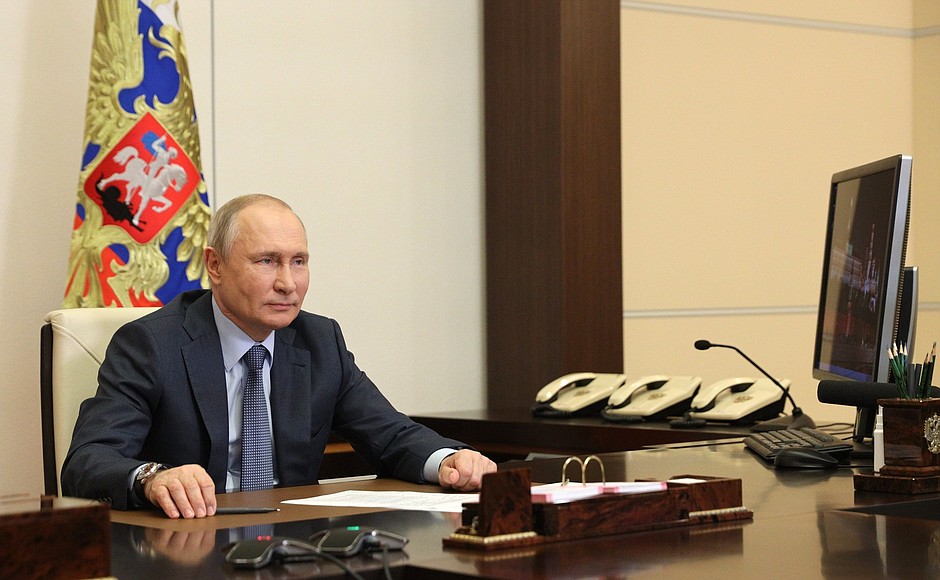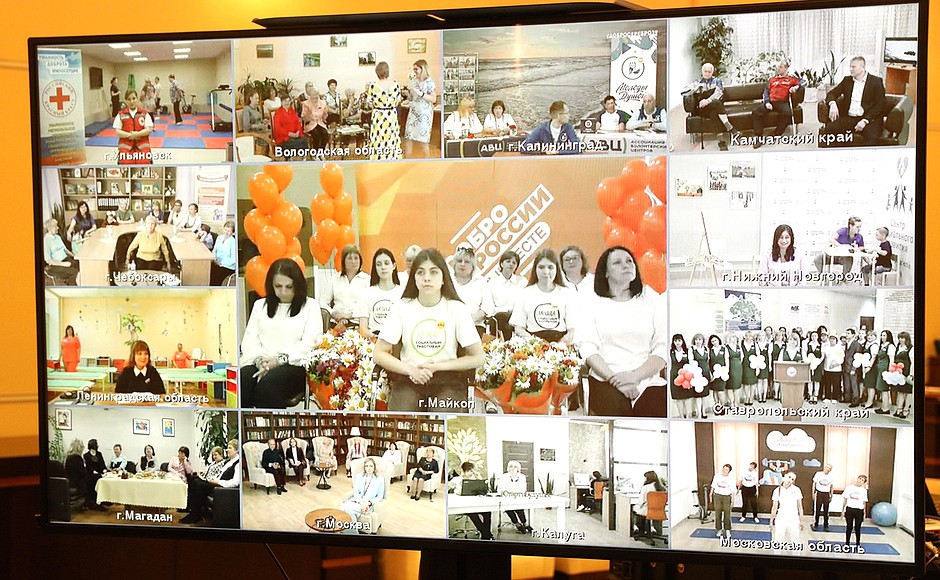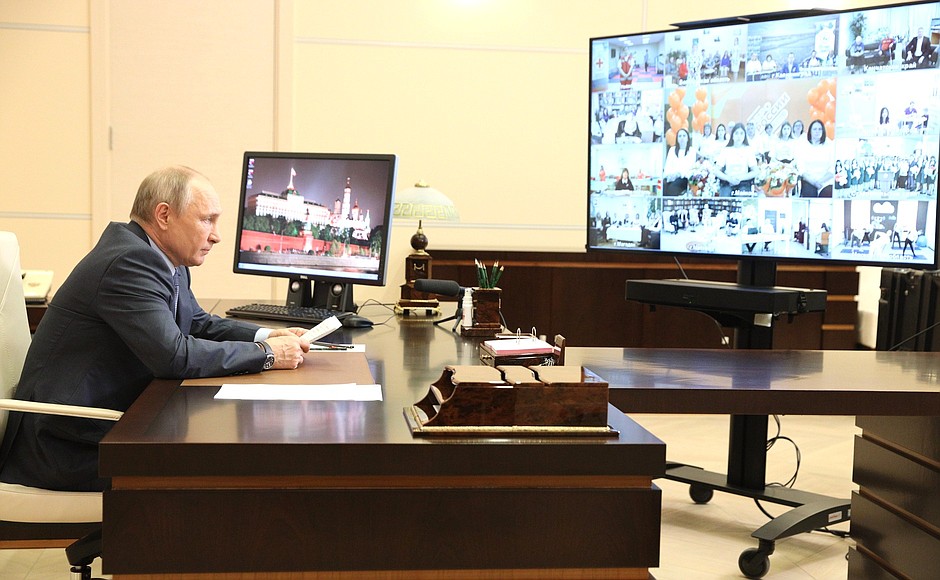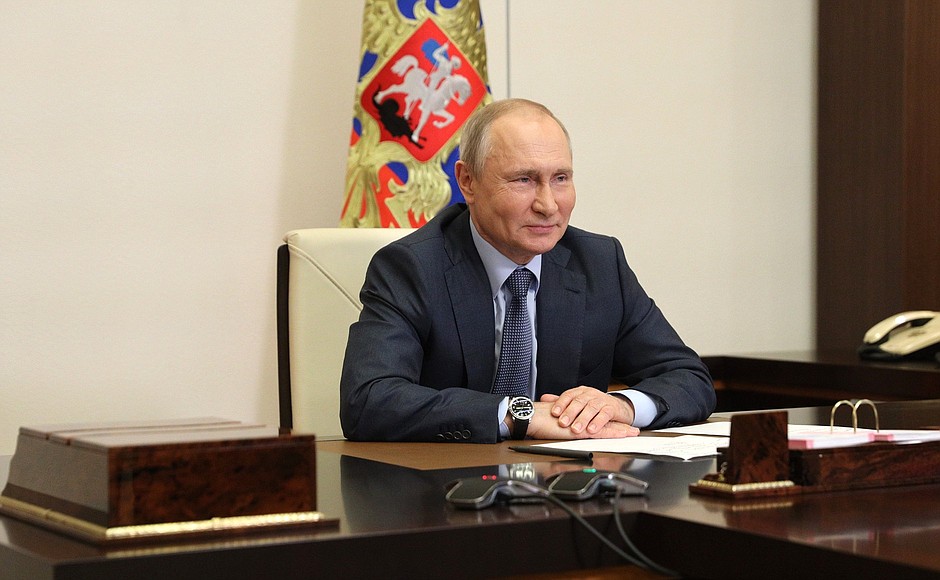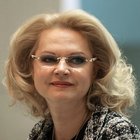Attending the meeting were social workers from government and non-profit organisations assisting people with disabilities and senior citizens, volunteers and employees of medical and rehabilitation centres. First Deputy Chief of Staff of the Presidential Executive Office Sergei Kiriyenko, Deputy Prime Minister Tatyana Golikova, Minister of Labour and Social Protection Anton Kotyakov and Minister of Healthcare Mikhail Murashko also took part in the meeting.
* * *
President of Russia Vladimir Putin: Good afternoon, friends.
Before we start working, I would like to congratulate you and your colleagues on Social Worker’s Day, which Russia is marking today.
Exactly 320 years ago, on June 8, 1701, Peter the Great adopted a decision that heralded the creation of the national social security system at the state level, and I would like to underscore the latter aspect. At the same time, the values of charity, love for one’s neighbours and support for the needy link and bind the entire centuries-long history of our nation and are the spiritual foundation of Russia’s traditional religions.
Outstanding patrons of the arts and selfless people, as well as members of diverse estates, perceived good deeds and assistance to people in need as a highly important aspect of their lives.
Currently, these moral principles are embodied in the everyday work of employees of state and municipal social service agencies, volunteers, representatives of the non-profit sector, charity foundations and religious associations.
Friends, thank you very much for your warmth, compassion and generosity, for all your achievements and your work for the benefit of your charges requiring your assistance, attention and care.
It goes without saying that your selfless actions during the coronavirus pandemic deserve infinite gratitude and recognition. I am confident that every Russian felt the special human dimension of your work and saw what serving society means in real life, and what deeds have great moral strength and spiritual generosity.
Despite your tremendous workloads and challenges, you selflessly and heroically did your duty. I have no misgivings about using the word “heroic” in this context. As they say in such cases, you heroically did your duty, worked to the limit of your capacity, almost without days off, cared for other people, tried to protect them from danger, to console and reassure senior citizens and seriously ill persons.
For its part, the state has tried to provide you with the support you need. For example, additional payments were introduced for residential care home workers who stayed in their workplace for weeks. Financial assistance from the state was also received by employees of NGOs and people who took the elderly, disabled people, and orphans from social institutions to their homes.
Special support was provided to socially-oriented NGOs, for example preferential loans, exemption from taxes and insurance premiums for the second quarter of 2020, reduced accountability and fewer inspections.
In addition to this, the level of funding provided for social projects under the Presidential Grant Foundation was doubled last year, from 2.5 billion to 5 billion rubles, which made it possible to support over 2,600 such initiatives.
Let me also note that in the next few days the results of another contest will be announced: winners whose projects are also socially significant.
Friends,
The experience of combatting the coronavirus has shown that together, with solidarity, we can solve even the most difficult problems. We are to make Russia’s entire system of social protection more up to date and more targeted through such a direct dialogue and cooperation, and organise all the procedures and the legal framework so that they, as far as is possible, take into consideration the interests, needs and requests of people who need assistance, attention and care the most.
I believe that we have a valuable resource: the best solutions and practices that have proven their use and are already being used in our regions and municipalities as well as in the noncommercial sector.
Of course, this experience must be consolidated and spread across the entire country, which will make it possible to provide more effective help to families in difficult circumstances, as well as to enhance social protection for orphans and disabled children, and improve the organisation of long-term home care so that seriously ill or elderly people can live in a familiar environment, close to their families and friends.
And, of course, it is necessary to expand the involvement of nongovernmental and charity organisations as well as volunteers of all ages in providing social assistance. Your sincerity, warmth and human kindness are, of course, the key to our common cause and common success.
I am sure that you have interesting experiences and proposals. Let us discuss these ideas and suggestions.
I am very glad to see you here.
Please let’s get down to our discussion.
<…>
